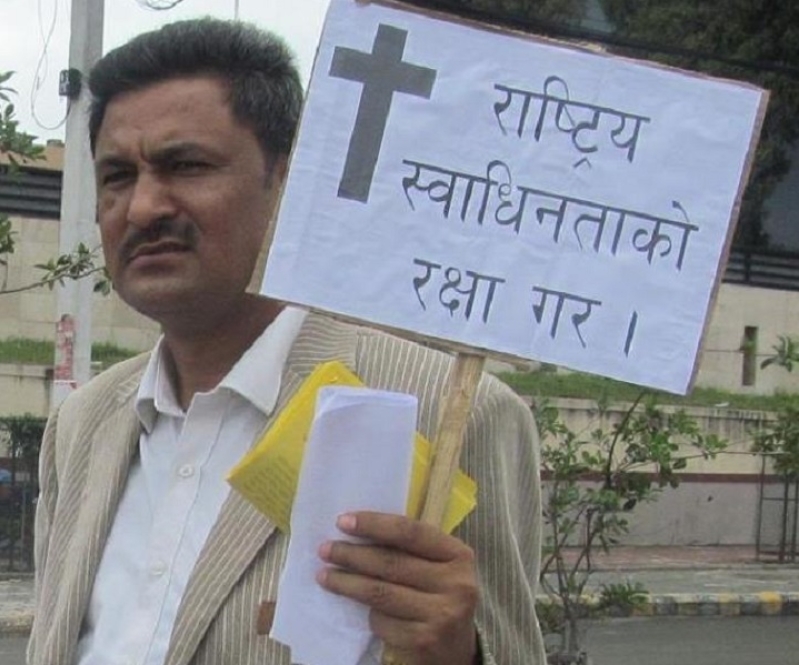
The fight for religious freedom in Nepal is like a tug-of-war where victory takes it one step forward, only to be countered by a setback that takes it one step backward.
Christians in Nepal are contending for their rights to live out their faith without being discriminated against. But when they think they have achieved a breakthrough, Hindu extremists appear on the scene and throw them into a setback, Mission Network News reported.
In 2007, Nepal was declared as a secular state. In 2015, a new constitution was introduced, which contained provisions allowing the freedom to practice one's religion.
Although there are laws that supposedly protect religious freedom, reality has a different face, according to C.B. Gahatraj, General Secretary of the Federation of National Christians in Nepal or FNCN.
One instance where Christian persecution could be seen was when Christmas was removed from the list of national holidays in early 2016.
Christmas was declared as a national holiday when Nepal became a secular state. However, in early 2016, the government decided to exclude it from the calendar of national celebrations.
"We are forced to take such a decision not to hurt Christians but to control the rising number of public holidays," Minister for Home Affairs Shakti Basnet said, assuring the public that they will allow Christians working in government to take a leave of absence.
Gahatraj said the move was a suppression of Christians' rights, adding that it could have been influenced by "anti-Christian tendencies."
Sharing updates about the church with FNCN's ministry partner Christian Aid Mission, an organization that provides assistance to more than 500 ministries in over 100 countries, Gahatraj recounted how believers had to take to the streets and press for a dialogue with Prime Minister Pushpa Kamal Dahal so that Christmas would once more be recognized as a national holiday.
He said FNCN met with the prime minister and asked him to recognize Christmas as a national holiday. The prime minister relented and announced that Christmas will be recognized a national holiday--but only for 2016.
"They started saying, 'Okay, we will grant the Christmas holiday.' The next day, they gave a press conference and the Nepal government granted for one time a Christmas holiday," Gahatraj said.
He also said the government is "targeting Christians," including foreign missionaries and organizations that work with local believers. Some organizations are already planning to leave the country. When they do, the local churches could be greatly affected, he said.
"It certainly helps when foreign donors partner, like Christian Aid Mission and others, in order to solve the issue," Gahatraj explained.
At present, churches in Nepal are facing a new problem: police officers, authorized by the government, are going to churches to "investigate" them and their leaders.
Gahatraj asked for prayers so the harassment would stop.
Despite all these challenges, the church in Nepal keeps growing, and the growth just seems unstoppable, Gahatraj said.
"Christians in Nepal are continually preaching the Gospel and planting churches, regardless of the persecution from the local people," he said.







